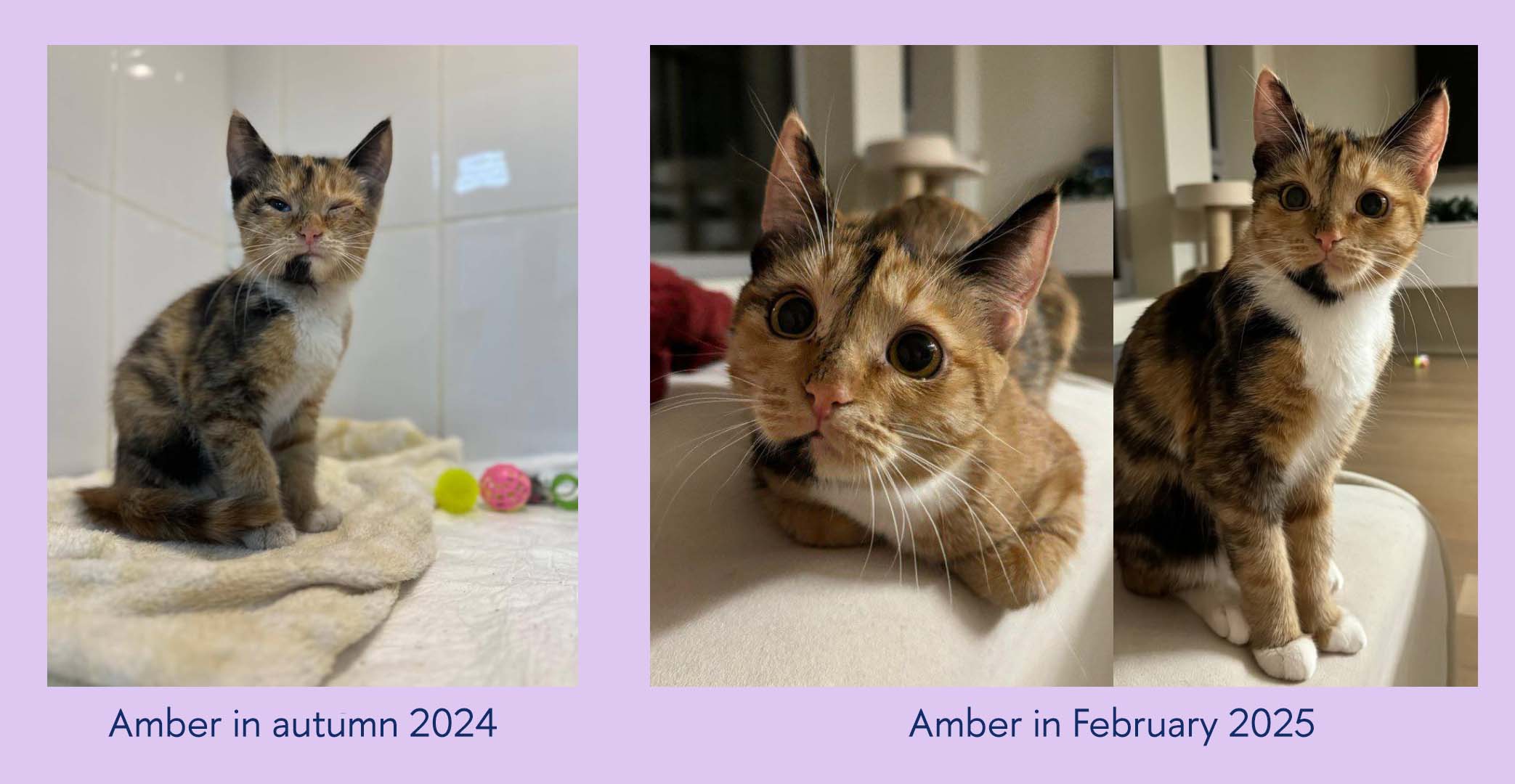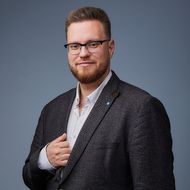‘The Role of an Academic Supervisor Is Not about a Fixed Schedule’

Pavel Voloshchuk has been developing and researching educational products for 14 years. Since August 2024, he has led two master's programmes at the HSE Faculty of Computer Science: ‘Research and Entrepreneurship in Artificial Intelligence’ and ‘Master of Data Science.’ In this interview, he talks about his career path, time management, and the specifics of academic supervision.
— Tell us about your background.
— I have two main interests. The first is adult education. For the past 14 years, I have been creating educational products: first in consulting and corporations (the Sochi 2014 Organising Committee, Russian Railways, Sber), and for the last five years at HSE University. My second interest is product research and product management, particularly in understanding customers and working with product hypotheses. This year, AST Publishing House released my textbook Shake the Customer: How to Create Products Inspired by Real People.
So, my background is in management and product development.
— What are your research interests?
— I am interested in how people learn, especially in face-to-face programmes delivered online. I study how user behaviour changes and how they perceive a product’s value. I also explore ways to quickly assess product value before investing in expensive design and development stages.
— How did you join HSE University?
— I worked at SberUniversity, a division responsible for training Sber executives and developing external educational programmes for partner companies. At a certain point, I was invited to join HSE University.
— What are your responsibilities?
— I supervise two master's programmes.
‘Research and Entrepreneurship in Artificial Intelligence’ is a traditional on-campus programme with 30 students. It is designed for those who want to pursue research in data science—whether as employees of corporate or university labs, founders, or members of tech startups.
‘Master of Data Science’ is a large online programme with around 450 students. This online master’s is suitable for those without technical experience who want to become data scientists from scratch.
These programmes differ in every way, from the learning format (on-campus vs online) to admission requirements (technical experience and research aspirations vs no technical background and learning from scratch).
Additionally, I collaborate with colleagues at the Faculty of Computer Science’s CPD Centre, where we are developing several new professional development projects.
I also teach product research and lead a mentorship seminar in my master's programmes.
— What does your typical working day look like?
— My workday varies greatly depending on the season.
During the admissions period, I hold consultations with prospective students and prepare for the new academic year. In May and June, I serve on examination boards and assess student defences.
On a regular day, I have meetings with the programme team, lecturers, and colleagues from different HSE departments, interact with students, prepare materials, and finish the day with evening classes.
The role of an academic supervisor is not about a fixed schedule. A programme is not just a set of tasks—it is about people: students, lecturers, university staff, the job market, and its dynamics. This means each day involves a variety of tasks to ensure the programme runs effectively.

— How do you manage to supervise two such different master’s programmes?
— It is challenging, and I would not manage without my team.
The ‘Research and Entrepreneurship in Artificial Intelligence’ programme is run in partnership with MTS, and their team provides great support. We also have an outstanding programme manager, Ilona Yakovleva.
For the ‘Master of Data Science’ programme, the workload is immense. Thankfully, several factors help: my prior experience in online education, our dedicated project team, and the incredible engagement of our lecturers, with whom we have a strong working relationship. For such a large programme, industry connections are crucial. For instance, in the 2024/25 academic year, we found research supervisors for 190 students in just two weeks.
— Are there any specific challenges in managing an online master’s programme?
— There are many. I shall mention a couple. First, communication with students and lecturers is much more extensive. Due to the online format, students cannot simply ask questions in person, and maintaining engagement is slightly more challenging. That is why we have dedicated curators to handle student queries. Community management is also our priority, so we ensure students can connect with their peers and expand their social and professional networks.
— What are the future plans for your educational programmes?
— In 2024, we launched the first cohort of the ‘Research and Entrepreneurship in Artificial Intelligence’ programme. Being pioneers is both challenging and rewarding—our students receive maximum attention from partners and the programme team. We are actively preparing for the next admissions cycle, analysing feedback, and designing the programme for the next academic year. Internship season is also approaching, and our MTS colleagues are ready to welcome students who applied for placements.
For the ‘Master of Data Science’ programme, 2025 will be a major milestone—we are conducting a complete redesign. The programme is now fully in Russian, and classes will be synchronous, allowing students to attend live online sessions. This will make online learning feel much closer to an on-campus experience. This transition is essential to enhance learning quality and keep the skills students acquire as relevant as possible.
— How do you spend your free time?
— I play tennis. I also enjoy quizzes. This autumn, we adopted a kitten and named her Amber. Lately, our family time has revolved around taking care of her. She’s almost recovered now, so we shall find a new hobby soon.

‘Master of Data Science’ is a master's programme that is delivered entirely online. It is designed for beginners starting from scratch—those who wish to transition into Data Science or apply classical machine learning models to interdisciplinary projects in their field.
The ‘Research and Entrepreneurship in Artificial Intelligence’ programme prepares future researchers in the field of artificial intelligence, equipping them to create and implement innovative products and technological solutions. This programme is organised in partnership with MTS.
See also:
Representatives of HSE University among Winners of Znanie.Lecturer Competition
On February 5, 2025, the National Centre ‘Russia’ in Moscow hosted an awards ceremony for the winners of the fourth season of the All-Russian competition Znanie.Lecturer organised by the Russian Society Znanie (translated as Knowledge in English). The winners included 70 lecturers from 37 Russian regions. Representatives of HSE University were among the best of the best.
Faculty of Economic Sciences Wishes Colleagues and Students a Happy New Year
As we look forward to 2025, FES professors have prepared a video message for students and colleagues. In this heartfelt address, they convey their warmest wishes, congratulations, and aspirations for a year filled with fruitful endeavors and remarkable accomplishments.
‘English Will Still Be the Global Language of Scientific Communication’
The HSE University Academic Writing Centre (AWC) was created to offer linguistic support to researchers writing articles in English. We spoke to the head of the AWC, Svetlana Suchkova, about the centre’s current initiatives, whether it has had to change the focus of its activities, and why HSE University staff come to the centre.
‘I Prefer Work to Most Types of Pastime’
Ivan Arzhantsev has headed up the Faculty of Computer Science since it was established in 2014. He has never been a specialist in Computer Science – all his life he’s been engaged in mathematics. On his 50th birthday, he shared with HSE Life how this has helped him to lead the best HSE faculty.
HSE University in Perm: The Upcoming Anniversary
On September 12, 1997, HSE University in Perm was established by decree of the Government of the Russian Federation. A year later, the university enrolled its first students.
'Learning what You Really Need'
Anastasia Likhacheva was appointed Dean of the Faculty of World Economy and International Affairs in November 2021. During her first six months in this position, she has faced numerous new challenges. In her interview with HSE University Life, she explains how she and the Faculty have been coping, why she spent just one year working outside of academia, and how prospective students can rethink their future careers in international relations.
'We Pursue Whatever Interests Us!'
MIEM HSE Professor Lev Shchur is celebrating his 70th birthday. In his recent interview with MIEM HSE News Service, he talks about the first scientific computer network created in the Soviet Union, the state of computational physics today, and the current online and offline work being conducted by his research team of undergraduates and faculty members.
Linguistic Pleasure: HSE University’s Academic Writing Centre
Founded in 2011, the Academic Writing Centre strives to help HSE University faculty improve their academic and research-writing skills in English. HSE University bulletin Okna spoke to several teachers and researchers who have used the AWC’s services over the decade.
‘Our Distinction Is Our Core Areas of Research’
In his interview for the HSE LooK, Evgenii A. Krouk, the Acting Director of HSE Tikhonov Moscow Institute of Electronics and Mathematics, talks about the distinctive features that set the institute apart, the place of project-based learning on the curriculum, research areas with the highest potential, and his vision for HSE MIEM future development.
‘Our Task Is to Do Things Better, or Do the Things That the Region Lacks’
HSE University's English-language newsletter, HSE LooK, has talked to Anna Blyakhman, Director of the HSE Nizhny Novgorod campus, about the history of the campus, its most noteworthy achievements, and future plans.



